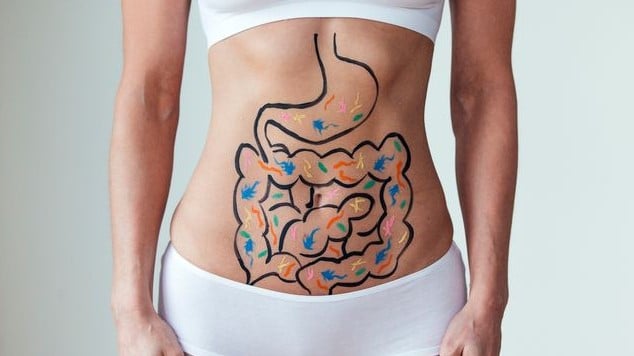With probiotics dominating the wellness conversation and supplement shelves, many women are wondering, how many probiotics should a woman take daily? The answer isn’t one-size-fits-all. Factors like age, digestive health, immune challenges, and even hormonal fluctuations can influence your ideal dosage.
In this guide, we’ll unpack everything — from daily probiotic needs to how many billion CFUs are optimal for women, the benefits of specific strains, and signs probiotics are working.
What Are Probiotics?
Probiotics are live microorganisms — mostly beneficial bacteria and some yeasts — that provide numerous health benefits when taken in the right amounts. Common strains include Lactobacillus, Bifidobacterium, and Saccharomyces boulardii, all of which support gut, vaginal, immune, and even mental health.
They can be consumed through fermented foods like yogurt, sauerkraut, kimchi, and kombucha, or in dietary supplements. But while food sources are great, targeted probiotic supplements often provide a more concentrated and clinically validated dose.
Why Are Probiotics Especially Important for Women?
Women face unique health concerns across their life stages — from hormonal fluctuations to pregnancy and menopause. Probiotics help balance vaginal flora, reduce digestive discomfort, and may even support emotional well-being. Specific strains have been linked to reduced urinary tract infections (UTIs) and bacterial vaginosis and improved immune response.
This is why brands like Garden of Life Probiotics for Women are formulated with strains tailored to female needs.
Probiotics Dosage Per Day: What’s Recommended?
There’s no universal answer, but most studies and experts recommend 1 to 30 billion CFU (colony-forming units) per day for general support.
How Much Probiotics Should a Woman Take Daily? Reddit Consensus:
On Reddit health forums, women often share experiences where 10 to 20 billion CFUs daily worked well for digestive and vaginal health. However, higher doses like 50 billion CFU, such as in Garden of Life Probiotics 50 Billion, are commonly used for intensive gut support or post-antibiotic recovery.
Probiotics Dose for Adults: General Guidelines
-
Mild digestive support: 1–10 billion CFU/day
-
Moderate issues (bloating, IBS): 10–20 billion CFU/day
-
Chronic digestive disorders or after antibiotics: 30–50 billion CFU/day
-
Vaginal/urinary health: 10–30 billion CFU/day
-
Mental health or skin support: 10–20 billion CFU/day
For most healthy women, a daily probiotic with 10–30 billion CFUs is a solid start. But if you’re dealing with a specific issue like IBS or vaginal infections, your doctor might recommend going higher.
Maximum Probiotics Dosage Per Day
Wondering how much is too much? Research suggests that most people can tolerate up to 100 billion CFU per day without side effects. However, going beyond 50 billion CFU/day consistently is typically unnecessary unless treating a diagnosed gut issue or taking probiotics after antibiotics.
For instance, Garden of Life Probiotics Vaginal Care provides a high-CFU formulation targeting yeast infections and BV, ideal for short-term high-dose use.
How Much Probiotics Per Day for Constipation?
Constipation is one of the top reasons people try probiotics. Clinical research recommends at least 10 billion CFUs daily, preferably with strains like
-
Bifidobacterium lactis
-
Lactobacillus casei
-
Lactobacillus plantarum
Look for supplements like Colon Broom that combine probiotics with prebiotics and fiber to enhance bowel movements. In more severe cases, 30–50 billion CFU may be effective short-term.
You can also explore our guide on high-fiber foods for constipation relief for a more holistic approach.
How Many Billion Probiotics Should I Take for Weight Loss?
For gut-mediated weight loss, research supports 10–20 billion CFUs daily, especially with strains such as:
-
Lactobacillus gasseri
-
Lactobacillus rhamnosus
-
Bifidobacterium breve
These strains can reduce fat mass, improve insulin sensitivity, and help control appetite. Provitalize, for example, combines these strains with thermogenic herbs to support women’s metabolism naturally. Read more in our detailed Provitalize vs. Happy Mammoth comparison.
How Many Probiotics Should a Man Take Daily?
While this guide focuses on women, men benefit from probiotics too. Typically, men do well with 10–20 billion CFU/day for digestive and immune health. Targeted products like Garden of Life Probiotics for Men also include strains that support testosterone balance, heart health, and muscle recovery.
Visit our article on probiotics for men to see which product suits your needs.
Signs Probiotics Are Working
Not sure if your supplement is helping? Here’s what to look for:
✅ Improved digestion (less bloating, better bowel movements)
✅ Boosted immunity (fewer colds or infections)
✅ Better vaginal health (fewer UTIs or yeast infections)
✅ Balanced mood (less anxiety, more mental clarity)
✅ Reduced inflammation (less acne, improved skin tone)
Results may take a few days to a few weeks, depending on the strain, dosage, and your gut health status. If symptoms worsen or persist beyond 3 weeks, consult your doctor.
Are There Any Side Effects?
Generally, probiotics are safe for daily use. However, some people might experience temporary bloating, gas, or mild discomfort as their gut adjusts — particularly at higher doses. These symptoms often subside in 3–7 days.
If you experience persistent side effects or have a weakened immune system, consult your healthcare provider.
Best Practices for Taking Probiotics
-
Take them daily for consistent benefits
-
Choose shelf-stable or refrigerated brands based on quality
-
Pair with prebiotics (like fiber) to feed good bacteria
-
Time it right — take on an empty stomach for best absorption
-
Rotate strains every few months for broader benefits
Conclusion: Tailor Probiotics to Your Health Needs
So, how many probiotics should a woman take daily? The sweet spot is typically 10 to 30 billion CFUs per day, with higher doses recommended for specific concerns like constipation, vaginal infections, or post-antibiotic recovery. Always consider your health goals, diet, and current symptoms when choosing dosage and strains.
Whether you’re aiming for better digestion, clearer skin, or hormone balance, probiotics can be a powerful ally. Just make sure you select the right product — and give your body time to adjust.

